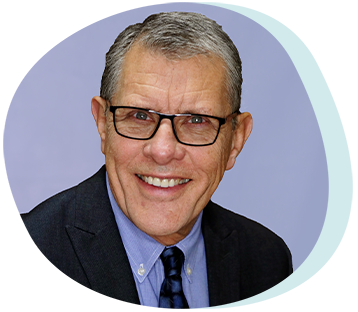
Ethical Integrity in a Changing World
Information
Date & Time
-
-
Description
Professional moral standards may not change; however, ethical decisions often present mental health providers (MHP) with a complex set of issues that require well-founded decision-making skills. Changes within culture have been astronomical and not even the DSM-5 offers clear cut responses to all of these changes that influence diagnosis and treatment. A survey of (MHP) reveals disparity on a variety of topics which may create a conundrum while working with a diverse population. Jaime Golden illustrates the conflicted thinking and decision-making MHP must resolve.
An individual’s morals define his sense of right and wrong. . . While morals deal with issues of right versus wrong, ethics deal with issues of right versus right. . . Purpose of Ethics. Standardized codes of ethics exist to give professionals an objective system for solving dilemmas. Morals are, by definition, subjective — each individual has his own moral code. Ethics in Counseling. Because morals are personal, a counselor may find that her moral code disagrees with the American Counseling Association’s ethical code. (The Ethical and Moral Principles in Counseling, 2019)
A primary ethical standard for MHP is simple “do no harm.” While agreeing each person has a distinct moral code that informs their decision making, it is problematic to juxtapose a description of morality and ethical issues over against each other and argue for objective decision making. There are those who argue that moral philosophy and ethics are the same. To simplify, morals are the standards that serve as an ideal. Ethics relates to the process of making decisions that affirm the standard. To make decisions that compromise the standards of MHP lacks integrity and violates the standard to which we have prescribed. Though MHP may find themselves in the gray zone, they are required to investigate “theories that can systematically describe what makes decisions right or wrong.” (Ethics (Moral Philosophy) and Value Theory – General Philosophy – Research Guides at University of Wisconsin-Madison) There is a thin line between the definition of morals and ethics if the ethical principles support the moral standard, thus becoming a standard.
The purpose of this presentation is to generate discussion related to a variety of ethical issues MHP will face in their practice and provide decision making models when faced with challenging decisions. Attaining this purpose statement is predicated upon gaining knowledge, exploring theories for ethical decisions, and MHP’s ability to support their ethical decisions. The five ethical standards and principles the American Association of Counselors will serve as the primary standards used in the presentation. They serve as the foundation for making decisions when faced with an array of issues, issues that could result in a MHP violating the ethical standards of their profession. MHP need a set of documental guidelines that support permissible decisions and behavior. It is imperative for MHP to have and use a model that has personal integrity, supports their profession, and is a fit with their agency.
Target Audience
- Counselor
- Psychologist
- Social Worker
- Substance Use Disorder Professionals
Presenters

Jack is the founder of Psuche Education, Counseling & Coaching Services. He has 16 years in the field of substance disorders and mental health, primarily with the Oklahoma Department of Mental Health and Substance Abuse, where he served as the Admissions Director at Rose Rock Recovery Center, a female residential facility for women with co-occurring issues, utilizing the Sanctuary Model. He served as the Executive Director at Clay Crossing, a faith-based co-occurring residential facility for men. In addition, he has done contract work and served as a consultant for MONARCH, a residential facility for women. In his doctoral dissertation/project he integrated spirituality, human development theories and psychotherapy. He is currently compiling a book about his philosophy of counseling, including types of groups and presentations he utilizes in a residential setting for those struggling with co-occurring issues. He developed the Together We Thrive, a K-12 program designed to identify at risk children and develop initiatives to assist them. He has 30 plus years of professional experience from a broad range of experiences (i.e., workshop presenter, adjunct teaching, substance disorders and trauma specific counseling and training, administration, research, program development, institutional assessment and development, community service, leadership development, reentry/criminal justice, chaplaincy, etc.).